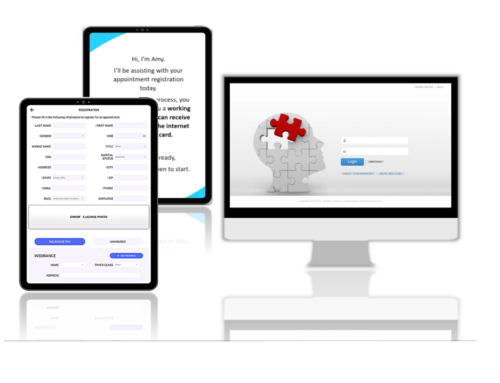Patient pre-registration is one of the first crucial step in the revenue management cycle. With new patients or updated information of existing patients, your practice needs to reflect everyone’s insurance plans and medical information in your records. Therefore, it is extremely important to keep an up-to-date record in your system.
What is Patient Pre-Registration?
Usually the first step before a patient visits your healthcare practice, pre-registration is the process of obtaining each patient’s demographic, health, and insurance information. Some healthcare providers choose to do this in person via an appointment while others allow the patients to fill out a form on their own.
In either case, make sure to obtain information such as:
- Patient’s name
- Date of birth
- Address
- Social security number
- Insurance provider
- Insurance plan details, group #, ID #, etc.
- Check eligibility to verify benefits
- Medical history, medications, and other health information
The person responsible for this process should also prepare the patients beforehand on what kinds of information is needed. Furthermore, ensure the person knows how to schedule appointments, as well as answer any questions the patient may have about the registration process and your healthcare practice.
Why is Pre-Registration Important?
Whether your practice pre-registers electronically, in person, or through forms filled out by patients individually, this process ensures you have the necessary information to treat and bill claims. It goes without saying that a patient’s medical history is crucial to treating them and prescribing the right medications effectively and efficiently. Furthermore, information such as their insurance plan also helps to make processes easier.
Knowing what insurance plan a patient is under will reduce time and money when billing. The persons responsible for coding and billing will know whether there is a deductible or what services are covered by the insurance plan and bill accordingly. If they do not know and bill incorrectly, then the wait time to receive a denial and make possible appeals could increase. This may stint your practice’s improvements in cash flow and working capital.
Additionally, having a complete patient record at the beginning saves time not having to do this during subsequent patient visits. If there are any updates, input them into the system later. When a physician or nurse needs access to patient information during appointments, they can easily find what they need. Organizing the administrative side can help healthcare providers focus on patient care. As well, having an organized process in place can help make a great first impression on new patients.
Americare Network
Save on time and costs with our medical billing and collections services. Our specialized teams know when to follow up on claims and when to push back on insurance denials. Our services are designed to help your practice manage its revenue cycle and expand working capital.
Contact us today for a free consultation!




